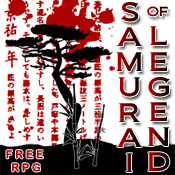Metamagical Themas is an eclectic collection of articles written for Scientific American during the early 1980s by Douglas Hofstadter, and published together as a book in 1985 by Basic Books (ISBN 0-465-04566-9).
The subject matter of the articles is loosely woven about themes in philosophy, creativity, artificial intelligence, typography and fonts, and important social issues. The volume is substantial in size and contains extensive notes concerning responses to the articles and other information relevant to their content. (One of the notes--page 65--suggested memetics for the study of memes.)
Major themes include: self-reference in memes, language, art and logic; discussions of philosophical issues important in cognitive science/AI; analogies and what makes something similar to something else (specifically what makes, for example, an uppercase letter 'A' recognisable as such); and lengthy discussions of the work of Robert Axelrod on the prisoner's dilemma and the idea of superrationality.
The concept of superrationality and its relevance to the Cold War, environmental issues and such is accompanied by some amusing and rather stimulating notes on experiments conducted by the author at the time. Another notable feature is the inclusion of two dialogues in the style of those appearing in Gödel, Escher, Bach. Ambigrams are mentioned.
There are three articles centered on the Lisp programming language, where Hofstadter first details the language itself, and then shows how it relates to Gödel's incompleteness theorem. Two articles are devoted to Rubik's Cube and other such puzzles. Many other topics are also mentioned, all in Hofstadter's usual easy, approachable style. Many chapters open with an illustration of an extremely abstract alphabet, yet one which is still recognizable as such.
The game of Nomic was first introduced to the public in this column, in June 1982, when excerpts from a book (still unpublished at the time) by the game's creator Peter Suber were printed and discussed.
The title is an example of wordplay: it is an anagram of Mathematical Games, the title of Martin Gardner's column that Hofstadter's column succeeded in Scientific American.







